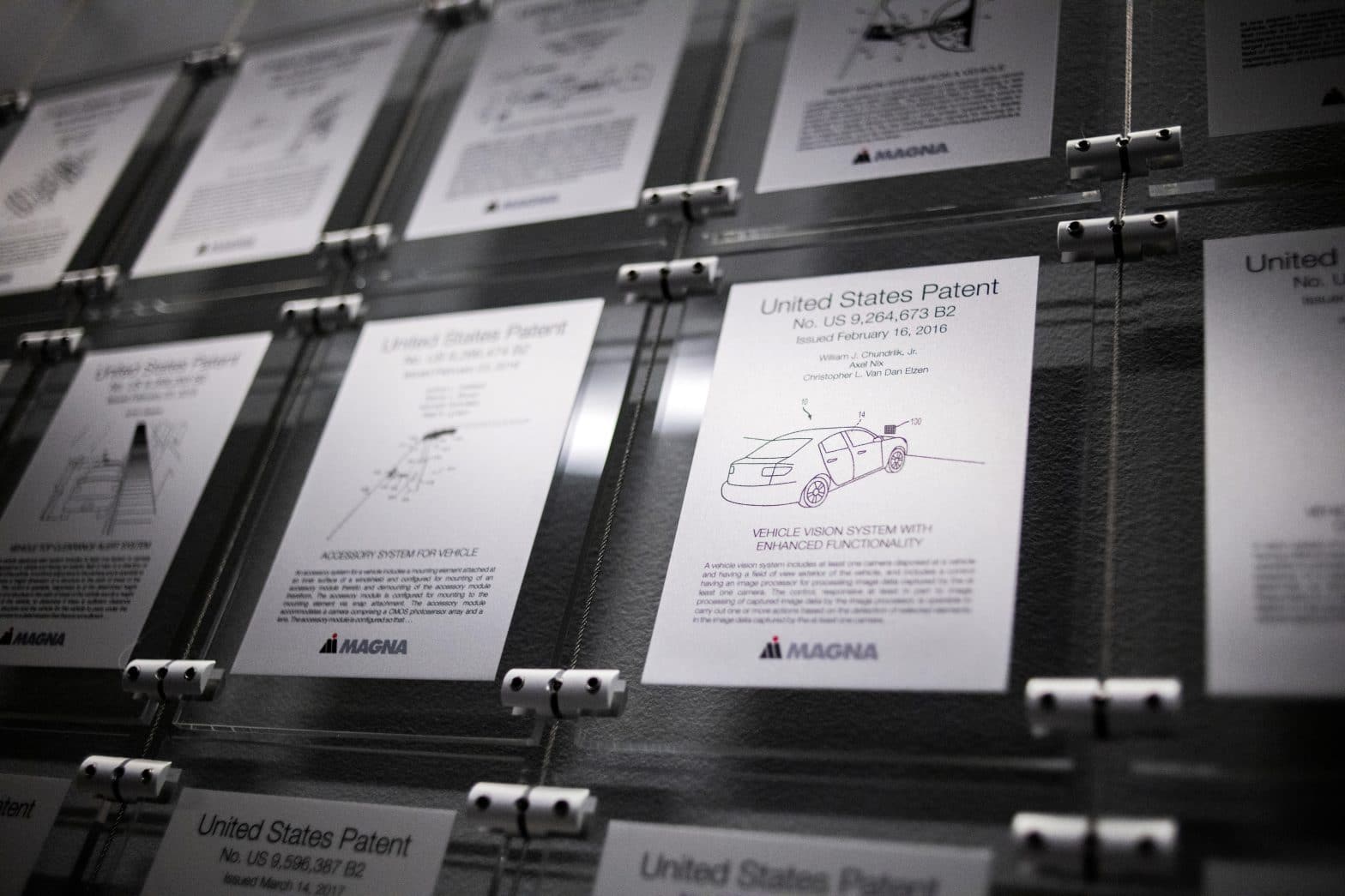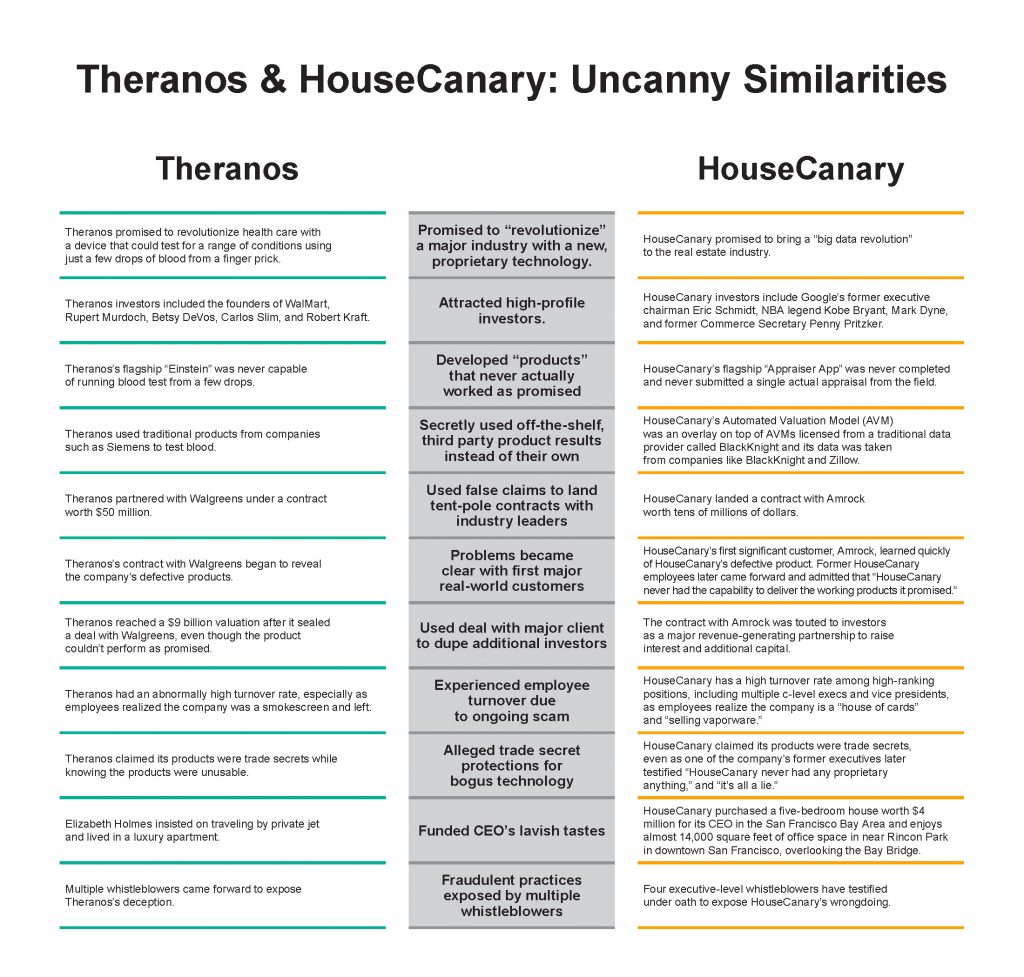Theranos 2.0? Another Purported Tech Company Trades on Fake IP
COMMENTARY

Intellectual property policies could get a major court test this year as a real estate services company appeals a massive $706 million judgment that it stole trade secrets from a San Francisco-headquartered REtech company.
At the dispute’s onset, the jury award, handed down in, Texas court in March 2018, was a twist ending to a $5 million breach-of-contract lawsuit that Amrock, formerly known as Title Source Inc., brought against HouseCanary, a San Francisco-based developer of automated valuation model (AVM) software used in real estate. Amrock contended that HouseCanary did not deliver the promised product. HouseCanary won the case by turning the tables, claiming that Amrock tried to steal the AVM’s algorithms that the developer claims do a better job at property valuation than tools from larger competitors, such as Zillow.
In the wake of the 2018 verdict, four HouseCanary employees provided sworn affidavits that HouseCanary never possessed the technology it accused Amrock of stealing. One of the four, Anthony Roveda, who had been HouseCanary’s director of appraiser experience, further identified an Amrock executive who he said undermined his company’s case by colluding with HouseCanary CEO Jeremy Sicklick. Roveda, who left HouseCanary prior to the lawsuit, claimed, “Sicklick, in particular, was focused more on enhancing the image of the company and on fundraising than on creating a working product.”
Those disclosures mirror the more sensational case of Theranos, the never-start-up that claimed to have a machine that could do hundreds of tests on a few drops of blood collected in a tiny vial. Theranos, the creation of Elizabeth Holmes, it turned out, had not developed anything close, and was cribbing its blood test results from larger samples using off-the-shelf technology from others.
If HouseCanary twisted the facts and claimed trade secret protections over questionable information in an attempt to push back against Amrock in hopes of netting a windfall, it worked. As of January 2017, HouseCanary had raised only $64 million in venture capital funding. Rather than defend the utility of its software, HouseCanary used trade secret protections to turn Amrock’s case into a trial over the value of its trade secrets.
The huge award—more than 10 times HouseCanary’s to-date VC
funding–was based nearly exclusively on testimony from HouseCanary’s witness
that the company’s trade secrets were worth $201 million. The witness offered
the court no independent valuation assessments and no formula as to how that
figure was calculated. Nonetheless, the jury used their subjective valuation as
the basis for the award, above which were piled additional monetary and
punitive damages.

Likewise, whistleblowers from HouseCanary say the company’s real estate data was generated from existing AVM software from Black Knight. Also like Theranos, HouseCanary depended heavily on one customer for validation. HouseCanary had no other customers and could produce no third-party confirmation that its products worked.
To be fair to the jury and the court, some of the details about the collusion only emerged following the trial. But if these revelations bear out, the ruling must be reversed.
The sheer size of the $706 million award, one of the largest ever in an IP case, attracted questions from the legal and technology communities as well as employees of HouseCanary.
HouseCanary’s defense employed the Texas Uniform Trade Secrets Act, which includes protections of confidential business information and remedy formulas when theft occurs. While the intent may have been to offer critical protections for research and development investment, misuse can result in severe impact on competition and free markets, especially because a big award can be an infusion of capital. Much like patent abuse, it allows unscrupulous abusers to use the courts to extract profits from products that fail in the marketplace. The consequence is that the rightfully earned value of successful businesses is siphoned off into uncompetitive enterprises—resulting in significant economic and competitive costs, which will undoubtedly affect consumers.
One lesson we have learned from Theranos is that even the savvy and vigilant can be taken in by a charismatic speaker who can hype the value of innovative technology. The story of a struggling start-up taking on entrenched corporate interests can often be compelling enough to overcome one’s healthy skepticism.
Ultimately, HouseCanary exploited the void of skepticism and wielded its trade secret protections with surgical precision, the way detractors warn these protections often evoke troubling unintended consequences. It may fall to a higher court to decide whether the law is too vague. Until then, juries and courts should be careful about taking without question anyone’s vague or unconfirmed valuation of IP, be it a patent or trade secret, before rushing to judgment.
—
Steven Titch is an independent tech policy analyst focusing on cyber security, information technology, intellectual property, and telecommunications.






















